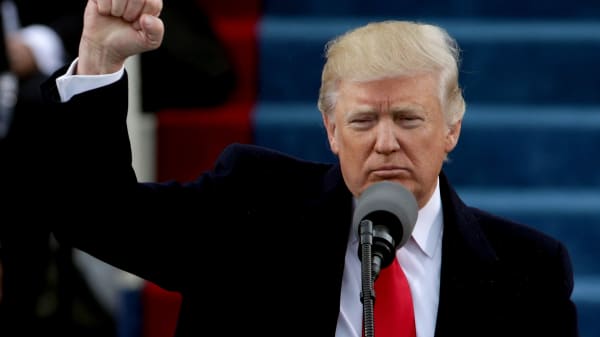As he puts it, Eisen was Obama's "Ethics Czar."
First I wanted to clarify the basic question: What is the difference between what is ethical vs. what is legal?
Eisen: "What we mean by ethical in the government ethics context is that there is a body of laws that govern what you can and cannot do, with respect to your conflicts of interest and other personal financial interests. In government, when you're a government servant, that's what we mean by government ethics."
"Of course, there's also the question of government morals, 'What's right and wrong to do?' We hope that the government ethics rules track the rules of political morality. What we've tried to do is codify abstract principles of right and wrong into a set of conflicts rules for government officials, starting with the Constitution and then the statutes and regulations as well. That's what we mean by government ethics."
I wondered, then, if we have codified rules, why does there seem to be so much grey area? Is Trump right — is the president above the law?
Eisen: "In any rule of law system, any body of laws — not just the government ethics laws that govern conflicts of interest on related subjects — there always are going to be grey areas. There's no doubt about it. Rule of law systems are imperfect in part, because… you're trying to build a set of behavioral codes on top of abstract principles of right and wrong. And that's tricky to do."
"In the case of Donald Trump, he wants to make it into a grey area, or really he wants to make it into a black-and-white area that conflicts law doesn't apply to him. He's correct that there's a lot of black-and-white, but if the black-and-white of it cuts against him, the conflict does apply. There can be no dispute that the rules in the Constitution, for example, which prohibit presidents from taking foreign government cash and other benefits, so called emoluments, apply to the president."
So what might all of this mean for U.S. business?
While most analysis of potential conflicts has focused on the possibility of corruption, more immediately, they're become a question of competition.
As Eisen has pointed out, the conflicts might mean that U.S. businesses could be in competition with sitting U.S. president.
Eisen said recently on MSNBC: "Who has standing to do something about it? The Standing Doctrine requires someone to be injured. And I think you are going to see a lot of people who are injured stepping forward to go to the courts — the guardians of our Constitution. For example, Donald Trump's competitors. His hotel on Pennsylvania Avenue is sucking in the cash and business from the foreign governments that used to go to a variety of hotels and other establishments around Washington. So those competitors that are losing business, that's an example of someone who's injured. There are a bunch of others who are going to be injured. I think you're going to see them go to court, maybe as soon as next week."
Sound surprising? As Eisen told me last week: "[Trump's] going to be in violation of the Constitution, and I don't believe that American people or the courts will stand by for that idly. So there'll be litigation."



